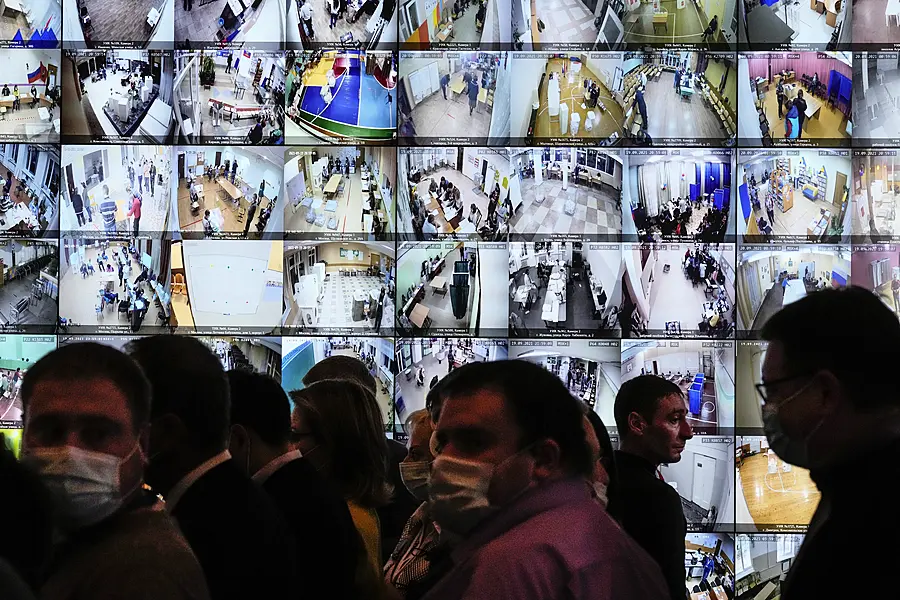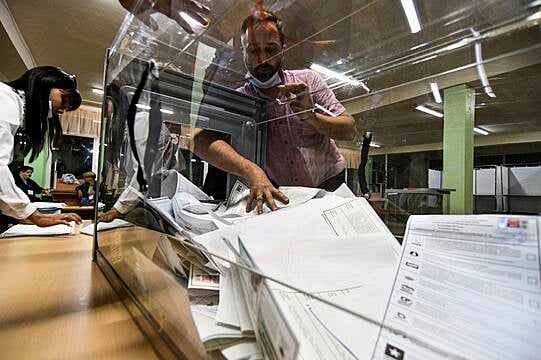Russia’s ruling party is on course to retain the super majority needed to ensure President Vladimir Putin’s continued grip on power after parliamentary elections that most opposition politicians were barred from and that were marred by multiple reports of violations.
The vote has been watched closely as key to the run-up to the 2024 presidential election.
It is not yet clear whether Mr Putin will run again, choose a successor or outline a different path — but he is expected to keep his hand on the tiller whatever he decides, and an obedient State Duma, or parliament, is crucial to those plans.
Results from about 95% of the country’s polling stations gave the ruling United Russia party 49.64% of the vote for the 225 seats apportioned by parties, according to the Central Election Commission.
Another 225 legislators are chosen directly by voters, and the results on Monday morning showed United Russia candidates leading in 199 of those races.

United Russia official Andrei Turchak suggested the party will get 315 out of the 450 seats — a result that would deliver more than two-thirds of the legislature’s seats.
The results indicated there would be almost no opposition voices in the Duma at all, with three other parties that usually toe the Kremlin line set to take many of the remaining seats, along with the New People party, which was formed last year and is regarded by many as a Kremlin-sponsored project.
Claims that the results had been manipulated mounted on Monday, when the results of online voting in Moscow were still not available to the public. The results in the other six regions that were allowed to vote online have been released.
In Moscow, approval of the ruling party has always been particularly low and protest voting has been widespread, and Kremlin critics were calling for protests later in the day.
The Kremlin sweep was widely expected since few opposition candidates were allowed to run this year after Russian authorities unleashed a sweeping crackdown on critics.
Organisations linked to imprisoned opposition leader Alexei Navalny have been declared extremist, and anyone associated with them was barred from seeking public office by a new law.
Mr Navalny is serving two and a half-year prison sentence for violating parole over a previous conviction he says was politically motivated.
Other prominent opposition politicians faced prosecution or were forced to leave the country under pressure from the authorities.
Mr Navalny’s team still hoped to make dents in United Russia’s dominance with their Smart Voting strategy, which promoted candidates who had the best chance at defeating those backed by the Kremlin. However, a massive effort by authorities to suppress the strategy has been under way in recent weeks.
The government blocked the Smart Voting website and pressured Apple and Google to remove an app featuring it from their Russian online stores — a move the tech giants took as voting began on Friday.
Google also denied access to two documents on its online service Google Docs that listed candidates endorsed by Smart Voting, and YouTube blocked similar videos.
In addition, the founder of the Russian messaging app Telegram, Pavel Durov, on Saturday disabled a Smart Voting chatbot set up by allies of Mr Navalny.







